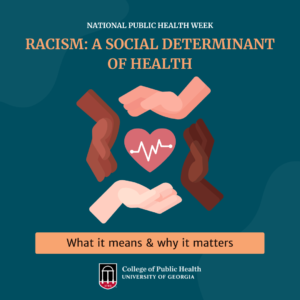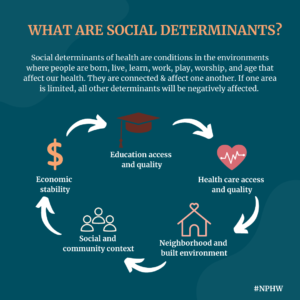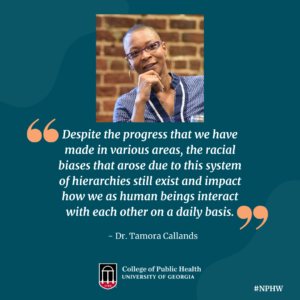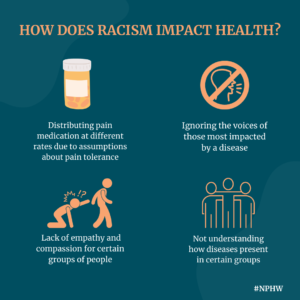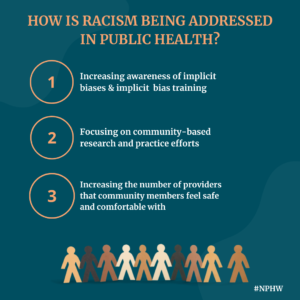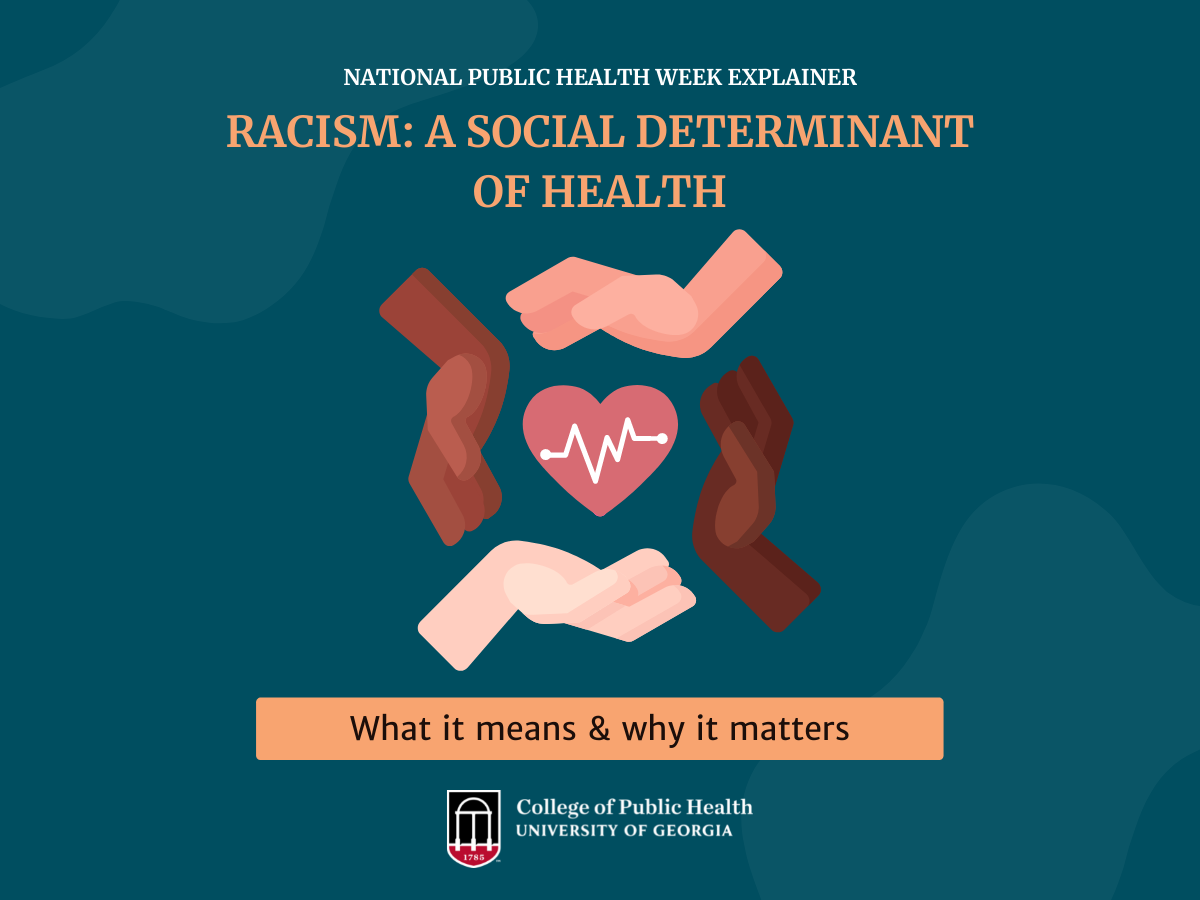The public health and health care communities have long acknowledged race and ethnicity as factors that influence health, but experts are now digging deeper to understand the ways that racism affects health outcomes.

Tamora Callands, PhD
Below Tamora Callands, an associate professor of health promotion and behavior at UGA’s College of Public Health, explains how racism is a key social determinant of health that we need to understand and address in order to advance health for all.
What are social determinants of health?
According to Healthy People 2030, social determinants of health (SDOH) are the conditions in the environments where people are born, live, learn, work, play, worship, and age that affect a wide range of health, functioning, and quality-of-life outcomes and risks. They are grouped into five domains:
- Economic stability
- Education access and quality
- Health care access and quality
- Neighborhood and built environment
- Social and community context
How do social determinants impact our health?
SDOH shape our health landscape, and they are the foundation for our future health and overall well-being. More importantly, they all are bidirectional and interconnected. For example, economic stability directly impacts our access to where we can afford to live, the quality of education in that area, the resources and quality of health care we have access to, the safety of our neighborhood, the infrastructure of the built environment that we eat, live, and breath in, as well as the community around us. The interconnections of these social domains, directly and indirectly, impact our health and the community around us.
How does racism impact our health?
Unfortunately, the infrastructure and systems within our country were built on a system of hierarchy—based on noticeable phenotypical features such as skin color or race. Despite the progress that we have made in various areas, the racial biases that arose due to this system of hierarchies still exist and impact how we as human beings interact with each other on a daily basis. As it relates to health and healthcare, these biases come in the form of a lack of empathy and compassion for certain groups of people, ignoring the voices of those most impacted by the disease, not understanding how diseases present in certain groups, having unwarranted standards – for example, pain medication administration – for certain groups of people and not others, and providing a lower quality of care. These examples are only a few of the few ways racism affects health in healthcare.
How is racism being addressed as a public health issue?
Racism is being addressed in several ways, including implicit bias training, increasing awareness of implicit biases, focusing on community-based research and practice efforts, increasing the number of providers that community members feel safe and comfortable speaking to about their concerns.
In my work in maternal and child health, this means providing additional levels of support, such as birthing advocates like doulas for patients, understanding the impact that discrimination has on pregnant women’s levels of stress in close to real-time and its effect on mental health, and finally, helping women develop ways to decrease their stress level during pregnancy.
Infographics created by Emily Loedding
Posted on April 4, 2022.
April 4-10 is National Public Health Week! Follow our social media channels – Facebook | Twitter | Instagram| LinkedIn – as we highlight current challenges around each issue, and share how CPH is helping to make our communities healthier, stronger and safer!

